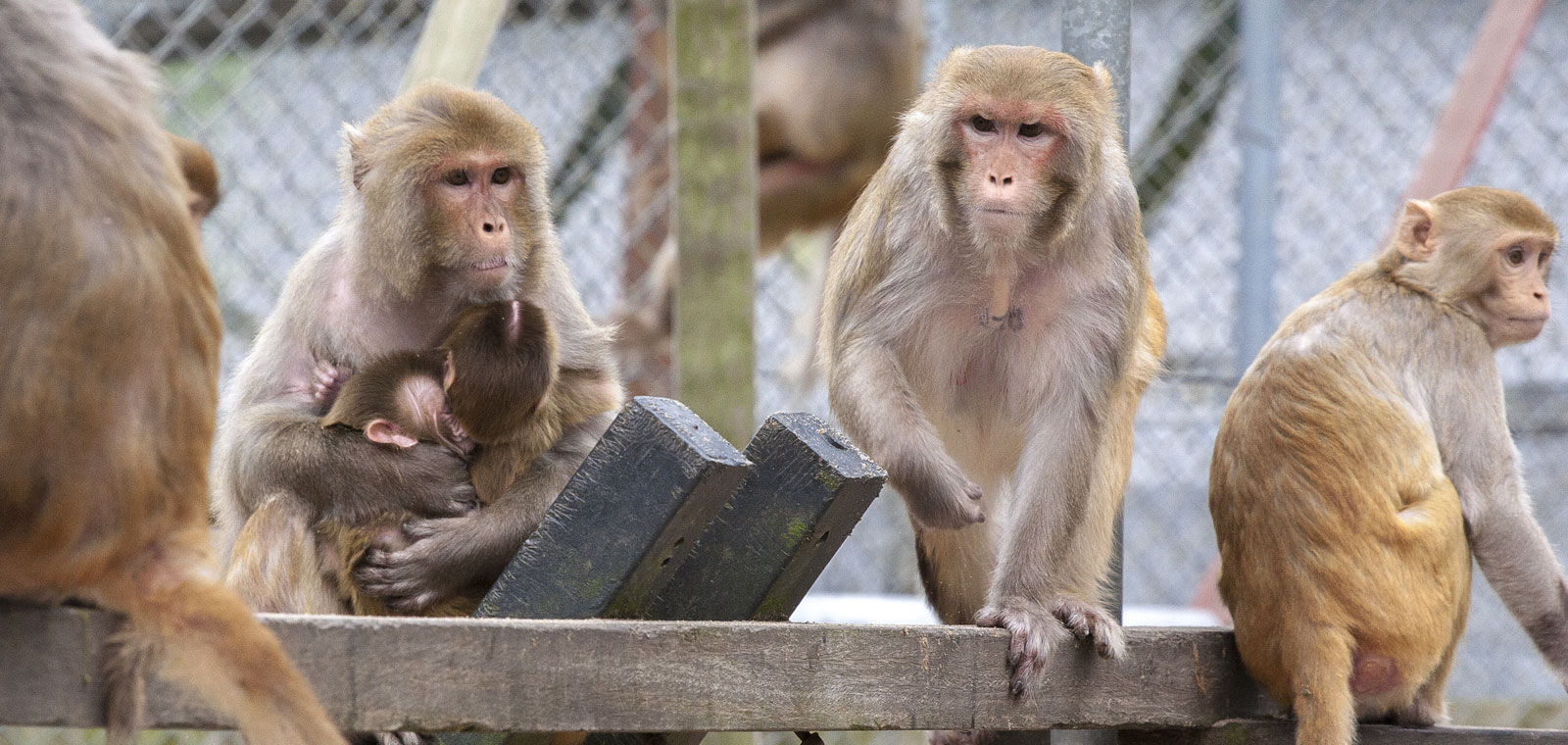
Finding the right monkey for every scientific research question. This sometimes creates difficult dilemmas. Annet knows all about this. Annet is an ethologist and our colony manager. Her work includes maintaining our monkey colonies, preventing inbreeding and deciding which animals can leave the group without disturbing the stability of the breeding group too much. Annet is therefore partly responsible for selecting which monkeys go into studies. And sometimes that hurts.
The Covid-19 crisis is a strange time. The demand for monkeys for biomedical research is greater than we were prepared for, but we also sometimes have to make difficult choices. Such as research on a covid vaccine in the elderly. Then you know that you cannot come up with six-year-old monkeys, but that the animals must be at least fifteen.
Monkey life as natural as possible
“We sacrificed the oldest animals in our breeding colony for this particular study, and that hurts a bit,” says Annet. She thinks back to 2003 when the first babies were born in the new animal enclosures of BPRC. The time of the first steps towards the most natural accommodation possible, unique in the research world. Multiple generations together and "itinerant" males men to prevent inbreeding. "That may seem simple, but it is not," said Annet. Every male has sexual interest in every female, but, more importantly, not every group of women has an interest in every breeding male. Women rule and if you put the wrong man with a group of women, it won't be a nice situation. “We've come a long way to get to where we are today”.
Every man's dream job
We spent many years researching the secret behind a successful new male introduction. First we let the male "at a distance" get to know the women. Literally, because they can only see and smell each other. We then pay attention to the behavior of both men and women. If we mainly see friendly behavior, then several ladies from the group are allowed to visit. The next step is that the male is allowed to stay an hour with the women and their children. An exciting time for all involved in which Annet and the animal careworkers continue to observe the animals in the group closely. Only when everything indicates that the chemistry in the group is not being disturbed by the new male, he has found a new home and can start every man's dream job: having unabashed sex.
Behavioral research helps with a stable colony
The number of successful introductions has increased enormously thanks to this behavioral research. Not only the personalities of the individual animals play a role in this, but also the group composition. It works best with groups that consist of a number of related women; mothers with their daughters and granddaughters. The more related the women are, the closer and more stable the group, the easier an introduction is.
Back to Covid-19
Annet has been with BPRC since 1996. The ladies who have to answer the question whether the vaccine has a chance of success in the elderly, were the first monkey babies that Annet saw being born at the new BPRC. She has known them all their lives, watched them grow up, and watched them learn to be good mothers. Annet promised them that they would never go into a study. Fate decided otherwise. Covid-19 and the important question of whether this vaccine can protect the elderly.

